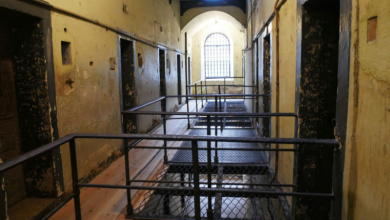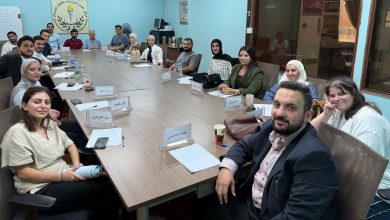Greek Boat Tragedy Has Raised Suspicion Regarding Ties to Libyan General Khalifa Haftar
Sabirah Mahmud

Early last month, a fishing boat, overloaded with refugees and migrants departing from Libya, capsized about 75 to 87 kilometers off the coast of Greece. This sinking has been coined as one of the worst ever recorded on the feared central Mediterranean migration route, as noted by Al-Jazeera. As over 70 migrants have been pronounced dead, the media and officials have spent the following weeks determining who is responsible for the deathly migration across the Mediterranean.
Out of the 104 survivors from the boat, Greek authorities have detained and accused nine men of being a part of the smuggling ring that organized the voyage. However, there has not been any accountability towards the Greek Hellenic Coast Guard who have alleged to have ignored the distressed signals from the boat as it capsized.
An international media investigation involving El País, Lighthouse reports, and Reporters United gathered testimonies from survivors, members of the Libyan security services, and analyzed court documents, pertaining to the arrests of the Egyptian men. Through their investigation, they had determined that many surviving migrants pointed accountability to Libyan General Khalifa Haftar, and that the leaders of the supposed smuggling ring answered to him.
With the help of Ihab Al-Rawi and his aid organization Consolidated Rescue Group, the reporters spoke with the relatives of the migrants who passed and the families of the survivors. Their research has not fully exonerated the Egyptians, but revealed the real people behind the illegal crossing were found in Eastern Libya.
One survivor narrated to Lighthouse reports: “All trips are overseen by [Khalifa Haftar’s] son, Saddam Haftar. Sadaam leads the cooperation himself or assigns one of the frogmen battalions.” Moreover, Libyan expert Jalal Harchaoui stated that General Haftar is known to boast about his monopoly on the use of force in Eastern Libya, where Tobruk, the city the migrant ship departed from, is located. Harchaoui adds “little happens without Haftar’s knowledge and that he cannot claim he’s not involved in the trafficking business.”
For the past year and a half, the smuggling business has shifted from Western Libya to Eastern Libya as the industry has flourished in the region without much care or retaliation from the oversight of Haftar. Survivor from the catastrophe, Syrian Dayyan Al-Numan, whose name is pseudonym for anonymity, reflected on his own experience before he boarded the boat. He was told that when he arrived at the airport in Benghazi, there were men who were already waiting for them despite the heavy surveillance and security to get into the airport. Al-Numan narrated that it was supposedly the connection to Haftar that allowed the men to pass through the many checkpoints in the country without any problems.
While the Amman Center for Human Rights Studies does not promote the accusation against Libyan General Khalifa Haftar as truth, we extremely condemn any supposed involvement of government officials in catastrophes such as the capsizing of the migrant boat. As the investigation into who is responsible has not ended, ACHRS urges Greek officials as well as the European commission to be vigilant in their investigations and allow for accountability into the larger systems that fuel unsafe and illegal migration over the Mediterranean.
Sources: The New Arab, Libya Update, Spiegel, Middle East Eye




